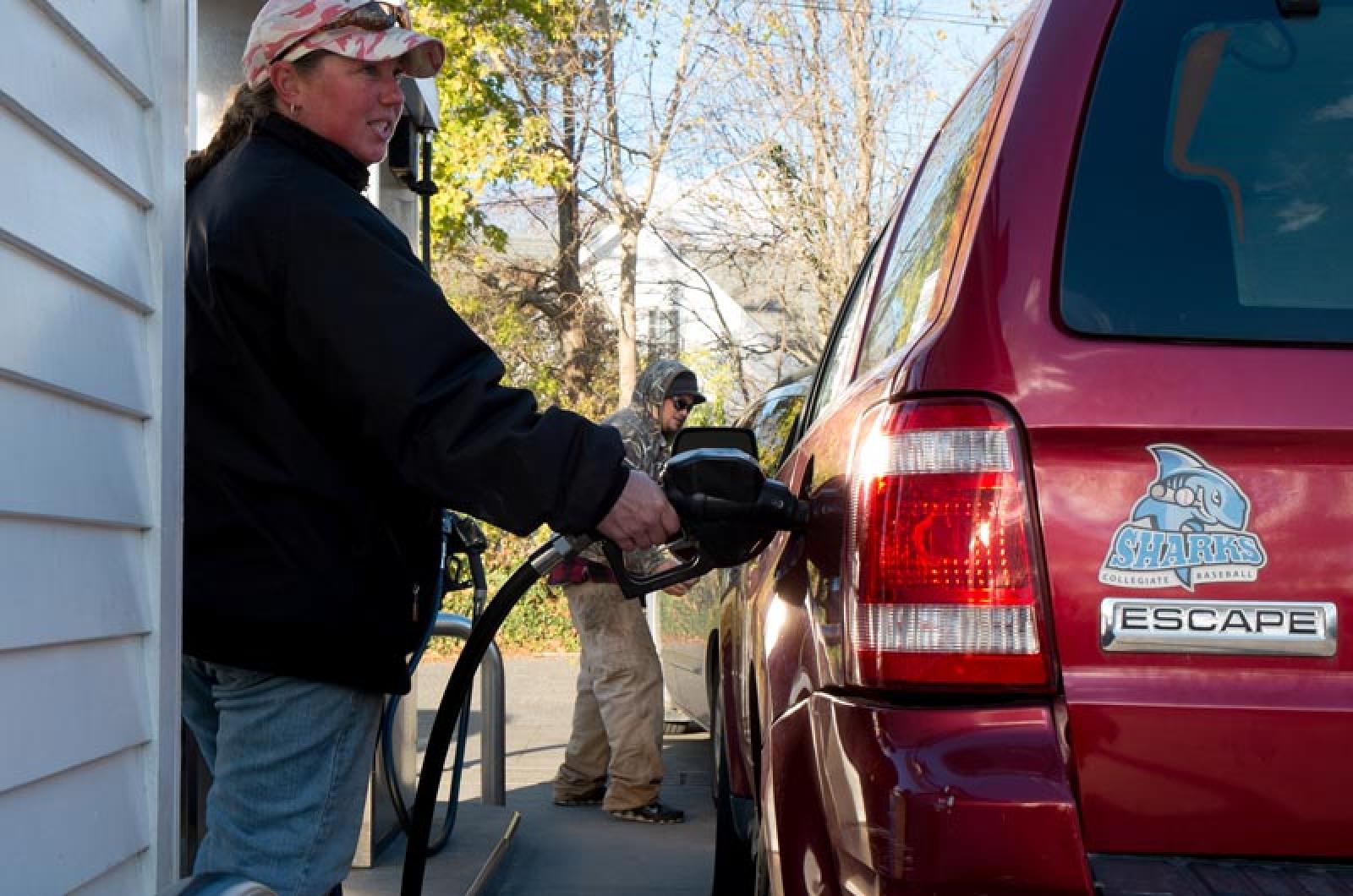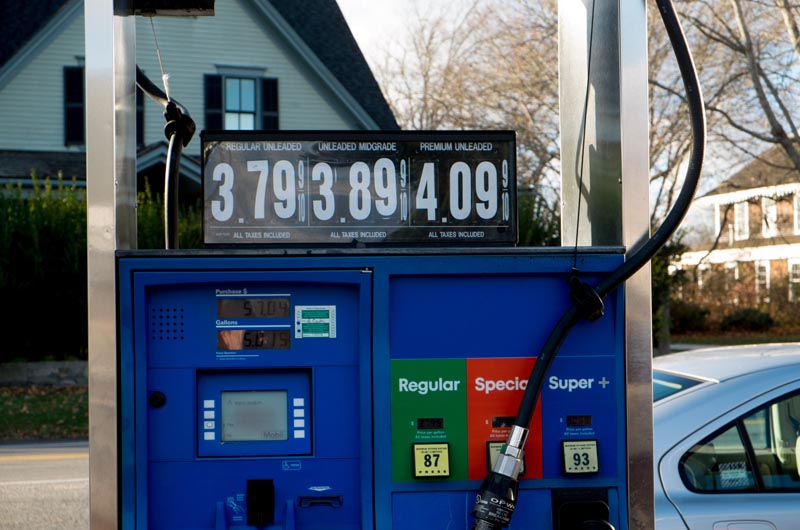On Thursday morning the Edgartown Shell station was a busy place, with a steady stream of drivers filling their coffee cups and gas tanks for their morning commutes. For many Islanders, this morning ritual has gotten harder to take for granted, as gas prices remain well above state and national averages.
The average gas price nationwide has declined steadily for almost 50 days — the longest decline since 2008 — and has reached its lowest point since 2010. But Island gas prices are still among the highest in the state.
“That’s why I’m only putting ten dollars in now — because I’m going off-Island today and I’m going to fill up on the other side,” said Barry Walker, who tries to drive less when he’s on the Island.
“I paid $2.93 in Middleborough two weeks ago,” said Frank Creney, who uses a truck for work but a smaller, more fuel-efficient car for up-Island trips.
“I’m so numb to it I don’t even look at it anymore,” he said. “I just fill it up.”
The average price of regular unleaded gasoline on the Vineyard as of Wednesday was about $3.89, almost a dollar higher than the state average of $2.95 and more than a dollar higher than the national average of $2.85. The highest prices on-Island as of Wednesday were $4.51 for super unleaded at Menemsha Texaco and $4.19 for super unleaded at the Edgartown Shell station.
To make ends meet, many Islanders have changed their driving habits and are pumping less fuel, said Michael DeBettencourt, owner of DeBettencourt Service Station in Oak Bluffs.
“People shop around more, they drive less, there is not as much leisurely driving going on,” he said. He added that many people also plan their shopping trips more carefully to minimize driving. “If they need to go shopping, I think they try to do more things in a straight line,” he said.
Prices at the pump are generally determined by the gas station owners, based on the prices offered by each distributor, which change daily. Prices at the Island’s nine gas stations usually change about once a week.
Gas station owners said this week that the higher prices on the Island are due in large part to higher transportation costs. Tanker trucks usually come over on the early morning ferry for hazardous materials, and depart in the evening.
“They charge an enormous amount per gallon to transport it here,” said Michael Rotondo, owner of the Airport Mobile service station. He added: “Everything down here is 15, 20 per cent higher, whether it’s the food you get or the lumber you build with.”
He said prices at the airport station peaked this summer at about $4.69 and were now down to around $3.87. National prices for regular unleaded fuel this year peaked in April at $3.70.
“Each time you get a load it’s at a different price and a different cost,” Mr. Rotondo said. “And you try to adjust your margins accordingly.”
The American Automobile Association reported this month that the decline in fuel prices is the result of a months-long drop in the cost of crude oil. In October the U.S. Energy Information Administration reported an increase in domestic oil production from 5.6 to 7.4 million barrels per day between 2011 and 2013, and projected continued rapid growth in 2014 and 2015.
Mr. Rotondo said lower gas prices on the Island do not necessarily affect sales at this time of year, since the off-season population is relatively stable. “You get a slight spike at Thanksgiving, a slight spike at Christmas, Veterans Day,” he said. “Anytime you get a three-day weekend, then people come down to their houses.”
For many years the number of Island gas stations has remained the same.
One of the biggest changes to occur in the last few years. Mr. Rotondo said, was the Vineyard Transportation Authority’s installation of its own pumps at the Martha’s Vineyard Airport. Those pumps now serve some of the Island’s police departments as well, putting a dent in local gas station sales.
Mr. DeBettencourt welcomed the lower prices this year, but noted that they were still part of a longer-term increase in the cost of fuel. “They’ve gone up higher than they’ve ever been,” he said. The recent decline is “still way above what it was.”







Comments (20)
Comments
Comment policy »